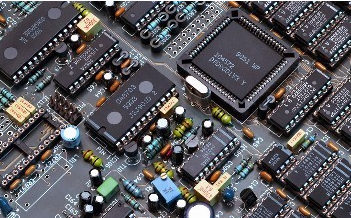First, the way of circuit board patch welding
In China, the use of circuit boards is very common, especially with the continuous updating of electronic products, the requirements of electronic companies on circuit boards are getting higher and higher, resulting in circuit board soldering manufacturers having to find ways to improve the quality of circuit boards. If you want to improve the quality of the circuit board, you must have a good soldering method. So, what are the soldering methods for circuit boards? According to industry insiders, there are two main methods, one is manual welding and the other is machine welding. These two different methods have different processing skills. The details are as follows:
1. Manual welding
Manual welding, purely manual welding, this kind of welding method is indispensable in the circuit board patch welding process. Some people can't help but ask, have not all machines been automated now? Why do we need to weld the parts manually? Regarding this point, industry insiders said that machine automated welding does provide great convenience for circuit board patch processing, but there are also certain defects, that is, too delicate and complicated circuit board patch welding, based on the current level of welding. Not up to it yet.
This has a certain relationship with the development of domestic welding technology and equipment.

Therefore, some components are required to be too complex or delicate, and manual welding will be used, which is safe and fast. In addition to the complexity of processing and manual welding, if it is small batch production, sometimes manufacturers will also choose manual welding, because manual welding of small batch sample products is cheaper than machine production.
2. Machine welding
This is the main feature of modern production and a common method. The method of machine welding is to make a stencil with missing print, and then print the solder paste on it, place the components manually or by machine mounting, and finally weld it through high temperature.
Machine welding is much more efficient than manual welding, and because machine automatic welding is a set-up procedure, the production is very standard and suitable for the needs of modern electronic products.
In the development process of the electronics industry in recent years, circuit board chip soldering technology is very popular. On the one hand, it meets the needs of electronic companies for thin and light circuit boards, allowing electronic companies to produce better and more durable products, and improve the company's image and brand awareness. On the other hand, it brings us more changes, so that the production of circuit boards is far ahead of the past in terms of cost and other aspects.
Two, judge the standard of smt patch proofing qualified
After electronic manufacturers hand over the smt patch proofing work to smt patch manufacturers, it does not mean that they have nothing to do. On the contrary, in order to ensure that there is no problem with the product, it will not affect the electronic product
After electronic manufacturers hand over the smt patch proofing work to smt patch manufacturers, it does not mean that they have nothing to do. On the contrary, in order to ensure that the product has no problems and will not affect the performance of electronic products, electronic manufacturers must learn to identify the qualified standards of smt patch proofing, so as to avoid receiving defective products. So, what are the criteria for judging the qualified smt patch proofing?
First, the appearance of the solder joints of the PCB light board
According to the editor, the solder joint surface of a good quality PCB must be clean, smooth, and metallic. If there is dirt or residue, it may have a certain impact on electronic products, such as easy leakage and frequent Short circuit, etc. This is a problem that often occurred in the early stage of mobile phone electronic products, but in the later stage, with the emergence of smt patch technology, this phenomenon has slowly disappeared. However, if the company does not know this, this problem may also arise.
In addition, to judge whether the PCB light board is qualified, it depends on whether there are burrs, gaps, and tin drag on the surface. If there is, it will affect the beauty of smt patch proofing, and it will also bring other hazards, especially in high voltage electricity. During construction, tip discharge may occur, causing damage to electronic products.
The surface of the PCB bare board solder joints must also be guaranteed to be free of abnormalities, otherwise it is easy to cause false soldering, false soldering, and unreliable smt patch proofing. This is well known by experienced masters.
2. There must be a reliable electrical connection on the PCB light board
When the surface of the component forms a virtual solder or a small amount of alloy layer, it is difficult to find this situation in the test or initial work, but as the use time increases, the contact layer is completely oxidized, it is easy to appear Desoldering, when the circuit is off and on, not working, etc. At this time, visually inspect the appearance of the circuit board, the circuit is connected, but it cannot work normally.
This is a very troublesome problem in smt patch proofing, and it is also a situation that manufacturers will deal with carefully. In order to solve this problem, smt patch proofing will ensure a reliable electrical connection during the manufacturing process, which can greatly reduce the occurrence of this situation.